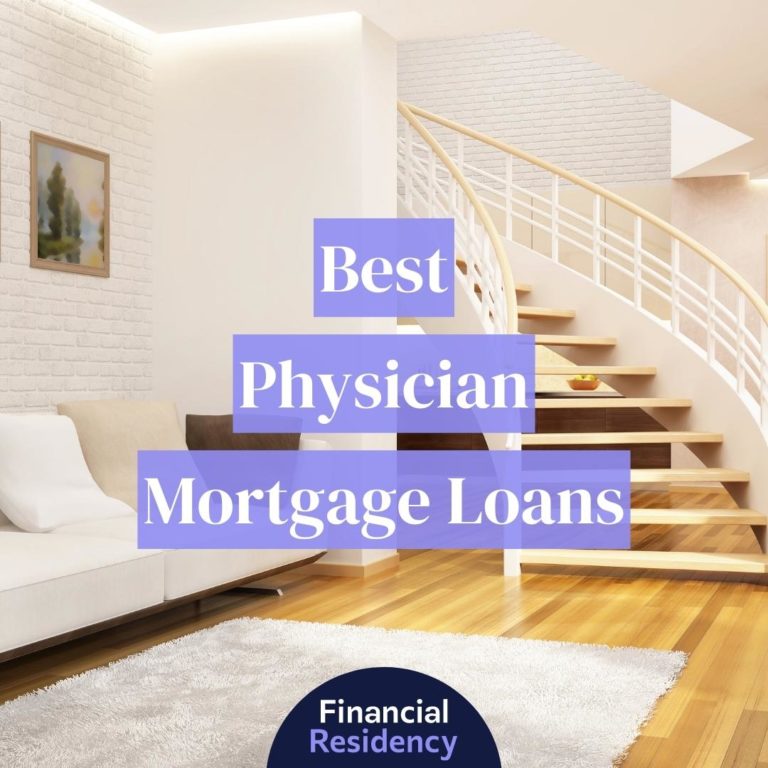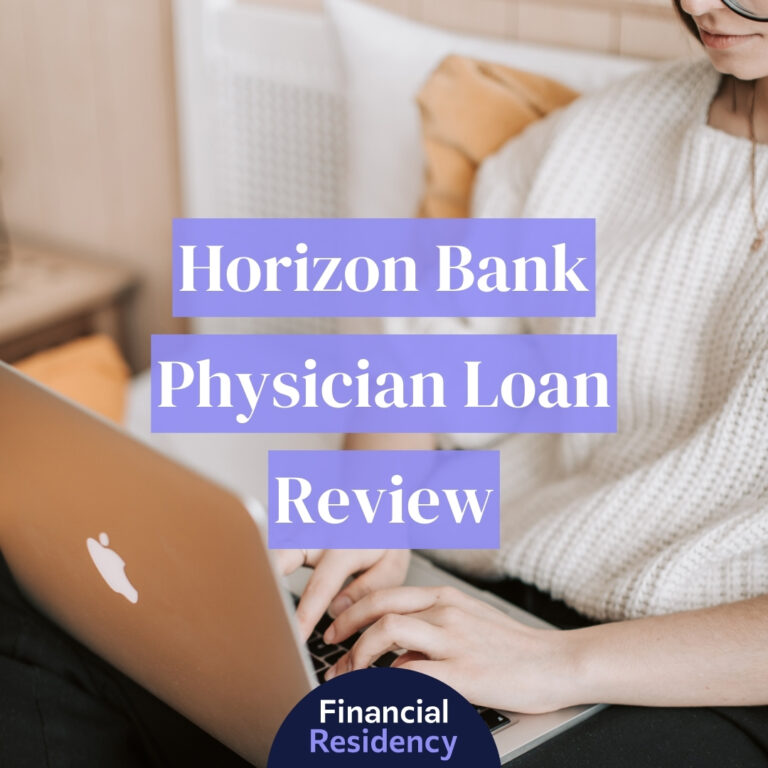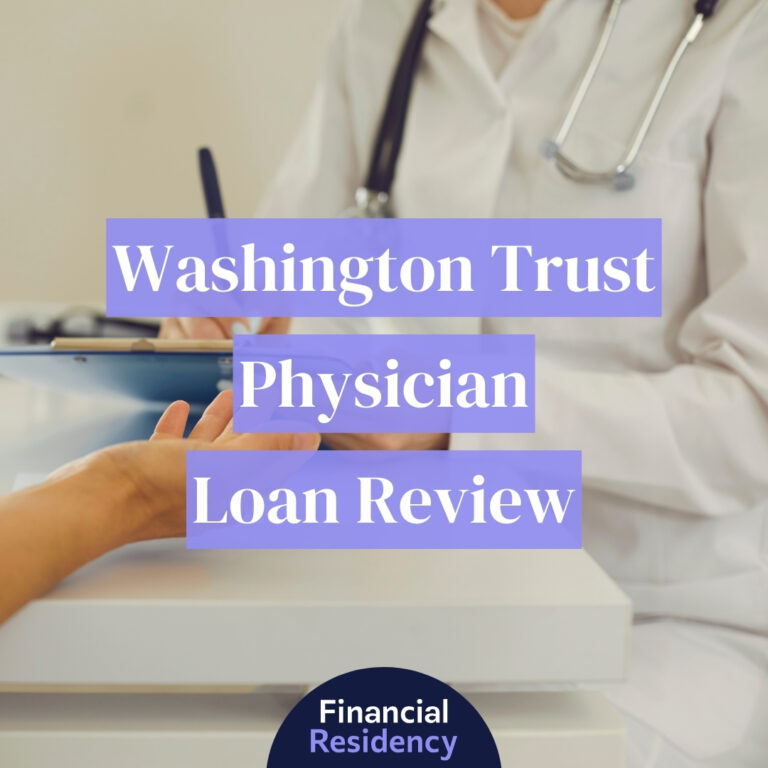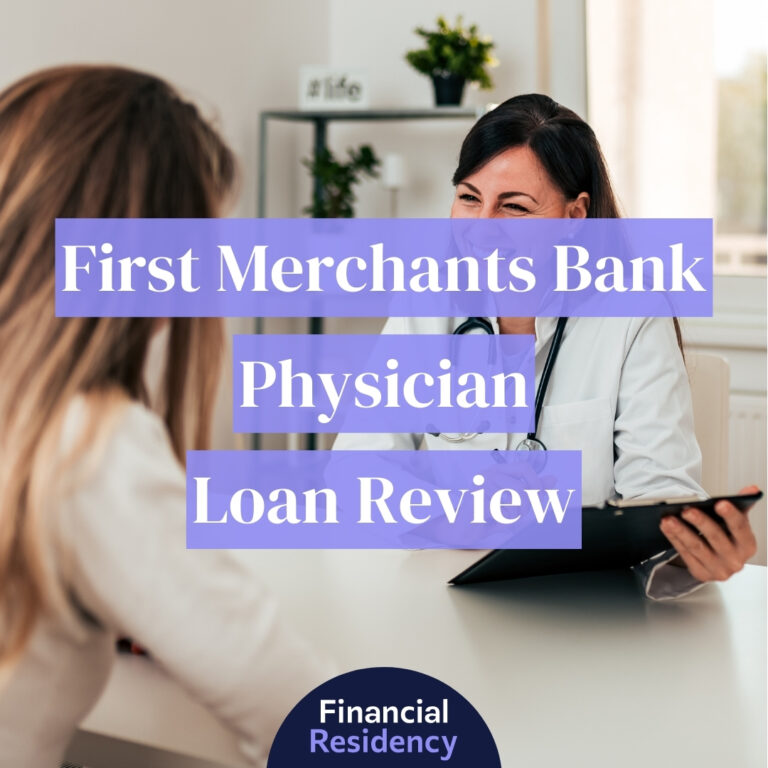Optometry is a high-paying profession in many areas of the country. According to the Bureau of Labor Statistics (BSL), the median salary for an optometrist in the U.S. is roughly $124,300, but not all physicians make that income directly after school.
More than 67% of optometrists graduate with medical school debt. The average debt is more than $180,000, not including undergraduate or credit card debt.
If you consider the costs of relocating to start residency or continue your career, purchasing a home can feel impossible for early-career medical professionals.
Sound like you? Optometrist mortgage loans can make your dream of homeownership a reality.
What Are Optometrist Mortgage Loans?
An optometrist mortgage loan is another name for a physician mortgage loan or a doctor mortgage.
While it’s not always an advertised product, mortgage lenders will offer physician home loans to medical professionals interested in purchasing or refinancing a primary residence.
Doctor mortgage loans allow early-career medical professionals to purchase or refinance their homes with a low down payment and often less restrictive requirements. Many physician loan programs will completely exclude deferred student loan debt in the calculation of your debt-to-income (DTI) ratio. In other cases, they may use your income-driven repayment amount.
Monthly payments can even be more affordable than comparable mortgage programs because physician mortgage loans don’t require private mortgage insurance (PMI), regardless of your down payment amount.
Physician loan programs offer high loan-to-value financing that may fall outside the risk parameters of other programs. Mortgage lenders are willing to be more lenient with medical professionals because they are considered lower risk for default and more likely to earn high incomes for the duration of their careers.
Optometrist mortgage loans are a great home loan option for medical professionals who are just starting their careers and don’t yet have a down payment saved or sufficient income history for a conventional mortgage. However, conventional mortgages often have lower credit score requirements, so doctor mortgage loans may not be the best option if you don’t have the best credit.
In any case, we recommend talking with a loan officer or mortgage broker to find the best home loan for your financial needs.
Top 8 Optometrist Mortgage Lenders
Here are the top optometrist mortgage loans:
- Flagstar Bank
- Fifth Third Bank
- Evolve Bank & Trust
- UMB Bank
- The Federal Savings Bank
- Premier Bank
- Frandsen Bank & Trust
- S&T Bank
Discover The Best Lenders Answer just a few questions about your career, where you're buying, and how much you want to borrow. Our service will then show you the exact programs you're eligible for from vetted physician loan specialists who will guide you through every step of the process – obligation-free!
1. Flagstar Bank
- BBB Grade: A-
- D. Power Score: 781
- State availability: AL, AZ, CA, CO, CT, FL, GA, ID, IL, IN, LA, MA, MI, NC, NJ, NM, NV, NY, OH, OR, RI, TX, UT, VA, WA, WI
Flagstar Bank is one of the more inclusive physician mortgage loans on the market, however, it is limited to people within ten years of starting their careers. The following professionals are included in the program:
- ATP Pilot
- Attorney
- Certified Public Accountant
- Clinical Nurse Specialist
- Doctor of Dental Medicine (DMD)
- Doctor of Dental Surgery (DDS)
- Doctor of Ophthalmology (MD)
- Doctor of Optometry (OD)
- Doctor of Osteopathy (DO)
- Doctor of Pharmacy
- Doctor of Podiatric Medicine (DPM)
- Medical Doctor (MD)
- Medical Resident (Educational License)
- Nurse Anesthetist (CRNA)
- Nurse Practitioner (NP)
- Physician Assistant (PA)
- Registered Nurse (RN)
- Veterinarian (DVM)
If you have a credit score of 720 or higher, you can borrow up to $1 million without a down payment. Loans up to $1.5 million will require a 10% down payment. Both down payment options waive the PMI requirement, which can save you hundreds on your monthly payments.
It will use your income-based repayment amount when calculating your monthly DTI ratio, which is a great option for medical professionals with significant student loan debt.
It’s important to note that Flagstar Bank only offers adjustable-rate mortgages (ARMs), which means your interest rate will fluctuate throughout your loan term and that can make it difficult to predict your loan payments at times.
Learn More:
2. Fifth Third Bank
- BBB Grade: A+
- D. Power Score: 815
- State availability: FL, GA, IL, IN, KY, MI, NC, OH, SC, TN, WV
Fifth Third Bank offers its physician mortgage loans to MD, DO, DPM, DDS, DMD, DVM, and OD degrees.
This mortgage lender doesn’t have an age limit, instead, it offers two loan programs: one for established doctors and another for residents, fellows, and new physicians in the first year of their careers.
Early-career physicians can borrow up to $750,000 without a down payment or as much as $1 million with a low down payment of 5%. Neither option requires PMI. Loans may also be used to refinance a property you already own.
The established doctor’s loan program is mostly the same, except later-career medical professionals can borrow up to $2 million with a low down payment of 10%.
Both programs require borrowers to have a 720 minimum credit score and two to four months of cash reserves.
Learn More:
3. Evolve Bank & Trust
- BBB Grade: A+
- D. Power Score: N/A
- State availability: All 50 states
Evolve Bank and Trust opens its doctor mortgage loan program to the following professions:
- Chiropractor (DC)
- Dental Surgeons (DDS)
- Dentists (DMD)
- Medical Doctors (MD)
- Nurse Anesthetists (CRNA)
- Nurse Practitioner (NP)
- Optometrist (OD)
- Pharmacists (RPH)
- Physician’s Assistant (PA)
- Podiatrist (DPM)
- Veterinarians (DVM)
Unlike many physician loan programs, there is no age limit on how long applicants practice. Medical residents or other doctors who have yet to start their jobs can still close on their loans as long as they can provide a future-dated employment contract within 90 days.
Physicians can borrow up to $1 million with no down payment. Loans up to $1.25 will require a 5% down payment, loans up to $1.5 million will require a 10% down payment, and loans up to $2 million will require a 15% down payment.
Learn More:
4. UMB Bank
- BBB Grade: A+
- D. Power Score: 791
- State availability: AZ, CO, KS, MO, NE, OK, TX
UMB Bank extends its physician mortgage loans to DOs, MDs, DMDs, DDSs, ODs, and PharmDs, however, later-career physicians have more benefits than early-career physicians.
For example, residents only qualify for the program with 10% down whereas attending physicians may qualify for up to $1 million with no money down and up to $1.5 million for just 5% down.
All down payment options exclude PMI requirements.
Learn More:
5. The Federal Savings Bank
- BBB Grade: A+
- D. Power Score: N/A
- State availability: All 50 states
The Federal Savings Bank will provide up to $2 million in financing for the purchase or refinance of an owner-occupied residence. Student loans deferred for 12 or more months will be excluded from DTI calculations.
There are no time limits on the amount of time borrowers have been out of residency. The following medical professionals are included in Home Loan for Medical Professionals Program:
- Doctor of Dental Science (DDS) or DMD
- Doctor of Osteopathic Medicine (DO)
- Doctor of Pharmacy (PharmD) – (Pharmacist)
- Doctor of Podiatric Medicine (DPM)
- Doctor of Veterinary Medicine (DVM)
- Medical Doctor (MD)
- Nurse Anesthetist (CRNA)
- Nurse Midwife (APRN)
- Nurse Practitioner (NP)
- Optometrist (OD)
- Physician Assistant (PA)
- Psychologist
The seller may even pay up to 6% of the total closing costs. Physicians relocating for new jobs can close up to 90 days before they begin work with a future-dated employment contract.
Borrowers will need a minimum credit score of 660. Loans may be used to purchase 1-4 unit properties and future rental income may be used to calculate your DTI ratio. At least one of the units must be owner-occupied to satisfy the primary residence requirement.
Physician loans will typically be structured as adjustable-rate mortgages, but there isn’t a cash reserve requirement.
Learn More:
6. Premier Bank
- BBB Grade: A+
- D. Power Score: N/A
- State availability: IN, MI, OH, PA
Premier Bank’s Medical Professional Loans are open to physicians, nurse anesthetists, certified nurse practitioners, physician assistants, veterinarians, physical therapists, optometrists, and chiropractors.
Medical professionals in those areas can qualify for up to $750,000 without a down payment. Larger loans of up to $1 million can be secured for as little as 5% down.
All down payment options waive PMI. The mortgage lender offers fixed and adjustable-rate mortgages.
Student loans deferred for twelve or more months aren’t factored into loan qualification.
Like many comparable programs, physicians can close on their homes with signed employment contracts if they’re starting a new job or relocating for work.
Learn More:
7. Frandsen Bank & Trust
- BBB Grade: NR
- D. Power Score: N/A
- State availability: MN, WI
Frandsen Bank & Trust extends its physician mortgage program to the following medical professionals:
- CRNA
- DDS
- DMD
- DO
- DPM
- DVM
- MD
- NP
- OD
- PA
- PharmD
- RPh
In most cases, physicians will be expected to put down between 5% and 10% on loans up to $2 million, but there in some situations 100% financing will be offered.
Construction loans are even an option with separate financing.
All student loans are excluded from DTI ratio calculations. Like all physician loan programs, PMI isn’t required.
Employment contracts are accepted as proof of earning potential and unlike many other programs, Frandsen doesn’t require you to start work within a certain time frame.
Fransden is also a community bank, which means its loan officers have intimate knowledge of the financial needs of the local population.
Learn More:
8. S&T Bank
- BBB Grade: A+
- D. Power Score: 871
- State availability: All 50 states
S&T Bank offers special physician financing options to the following degrees, some of which aren’t medical professionals:
- MD
- DO
- DDS
- DMD
- DVM
- OD
- PhD
- JD
S&T Bank’s physician mortgage loan is unique in that it will allow qualifying borrowers to put down 5% on loans of any amount. Fixed and adjustable rate mortgage products are available.
Loans may also be used to refinance a property you already own. You’ll be eligible for up to 80% loan-to-value when you refinance.
Self-employed physicians, H1-B visas, and green card holders are also included in the program.
Other information is sparse because S&T Bank works to customize programs to fit a wide variety of financial situations.
Learn More:
Pros and Cons of Optometrist Mortgage Loans
We recommend considering the pros and cons of optometrist mortgage loans before making your final decision.
Pros:
- No PMI: Physician mortgage loans don’t require private mortgage insurance, regardless of your down payment amount.
- Low down payment: Many physician loan programs will accept down payments as low as 0–5% of the loan amount.
- Buy with an employment contract: Physician home loans often allow you to purchase or refinance your home with a signed employment contract, so you can settle in your home before you start working.
- Flexible DTI calculation: Physician mortgage underwriters will often exclude deferred student loan debt or use your income-driven repayment amount.
Cons:
- Larger loans: Doctor loans are non-conforming loans, which means it can be easier to borrow outside your means.
- Higher interest: Physician loans will sometimes have higher interest rates or be structured as an adjustable-rate mortgage to compensate for the more lenient qualifications.
- Residence restrictions: Many physician loan programs will only provide financing for owner-occupied residences and some mortgage programs may place restrictions on the type of property you can purchase.
Other Home Loan Options for Optometrists
Physician mortgage loans aren’t the only options for optometrists interested in purchasing a home. There are several other home loan options worth considering. The right choice is the loan program that works best for your unique financial situation.
1. Conventional Loan
Conventional loans are the most common mortgage choice for American home buyers. Most conventional loan programs require a minimum credit score of 620. You will also need a DTI ratio of 43% or less, at least two years of stable income history, and suitable cash reserves to cover the down payment and closing costs.
A minimum down payment of 3% is expected, but larger down payments will generally result in more favorable loan terms.
Conventional loans will require PMI until you reach 20% equity in your home. There are no occupational restrictions for conventional mortgages either.
Some people may favor conventional loans because they can be used to purchase second homes and investment properties without needing to satisfy an occupancy requirement.
In this way, conventional loans can more easily be leveraged for future income.
However, many conventional loans are conforming loans, which means they’re subject to loan limits set by Freddie Mac and Fannie Mae. The loan limits vary by state, but the national limit is $726,200 for 2023.
In high-cost-of-living areas, this limit can be adjusted as high as $1,089,300 for a single-family home.
2. VA Loan
Military optometrists serve a vital role in the armed forces and this service comes with its benefits in the mortgage loan process.
The Department of Veteran Affairs works with local mortgage lenders to offer VA loans.
VA loans are available to any current or former member of the armed forces or reserves who served for at least 90 days. Veterans and other former members must have been discharged in good standing, but there are some qualification guidelines for unique circumstances.
Spouses of veterans who died or were injured in the line of duty are often eligible for VA loans as well.
After the basic qualification of serving in the military is satisfied, you’ll receive a Certificate of Eligibility. Lenders will also want to verify at least two years of stable employment history.
VA loans don’t have a standard credit score or DTI requirement and instead, lenders are required to review the entire loan profile before making a final decision.
It’s generally advised that borrowers have a credit score of at least 620 and a DTI ratio of less than 41% to qualify for favorable loan terms. However many VA lenders will be flexible with qualifications, so it’s important to discuss your options with a loan officer.
VA loans must also be used for the purchase of a primary residence you live in for at least two years. Exceptions will be made for borrowers who have been deployed or otherwise traveling for employment reasons.
VA loans don’t require PMI, but you will have to pay a funding fee equal to 1.65% of the loan amount for the lifetime of your loan.
3. FHA Loan
The Federal Housing Authority sponsors FHA loans at local lenders. FHA loans are particularly advantageous for borrowers who need looser financial requirements than a conventional loan.
Like many mortgages, you’ll need at least two years of stable employment history to qualify.
FHA loans only require a down payment of 3.5% of the purchase cost for borrowers with credit scores of 580 or more. Borrowers with lower scores can still qualify but you will be required to put down at least 10%.
Gift funds may be used for FHA loans, but you will be asked to provide a gift letter or other proof of where the money came from. Another benefit of FHA loans is closing costs can be rolled into your total loan amount.
This option may work well if you have minimal cash on hand, but it’s important to note you’ll pay interest on this amount over the length of your loan term.
FHA loans must be used for the purchase of a primary residence that meets property standards and has been appraised by an FHA-approved appraiser, and are subject to certain loan limits based on your location.
They also do not require PMI, but you will have to pay an up-front funding fee equal to 1.65% of the total loan amount at closing and monthly mortgage insurance premiums. Like PMI, the latter payment can be discontinued when you reach certain equity in the home.
4. 80/10/10 Mortgage
PMI is an additional monthly expense no matter how much you make and when you purchase a home, it’s important to make wise financial choices to help you stay on budget with ease. One way to circumvent the typical PMI requirement is an 80/10/10 mortgage.
With this mortgage option, you take out one mortgage for 80% of the home’s purchase price. You’ll need to meet all the typical requirements for a conventional loan. You can then take out a home equity loan or a home equity line of credit for an additional 10% of the home’s purchase price. With 90% of the home’s cost financed, you can get away with a 10% down payment while still working towards building equity quicker than when you use the same down payment for other loan programs.
Programs, Grants, and Down Payment Assistance
Purchasing a home costs money no matter how you slice it. There are some programs nationally and locally that can help with some of those costs.
Good Neighbor Next Door
The U.S. Department of Housing and Urban Development (HUD) runs the Good Neighbor Next Door Program. Qualified teachers, firefighters, and medical professionals can purchase homes in designated revitalization areas at a 50% discount.
If you purchase a home through this program, you will be required to take out a second “silent mortgage” at no interest, but the entire loan will be forgiven after you fulfill a three-year occupancy requirement.
National Homebuyers Fund
The National Homebuyers Fund (NHF) will help prospective homeowners with up to 5% of the purchase or refinance costs of their primary residence. These funds may be used for closing costs or a down payment.
NHF loans are often forgivable, but the terms will vary by lender. Funds may be used nationally with FHA, VA, USDA, and conventional loans at participating lenders.
Grants and Rate Discounts from Private Lenders
Private lenders will often have discounts and first-time homebuyer grants available, so it doesn’t hurt to ask. For example, if you open a checking or savings account and enroll in AutoPay, you can receive an interest rate discount of up to 0.25% with some mortgage programs.
Talk to your loan officer about grants and rate discounts to find out what you qualify for.
Down Payment Assistance Programs in Your State
HUD maintains a resource of various down payment assistance programs across the country. Local home-buying programs are often sponsored by counties that want to increase rates of home ownership.
Many programs are geared toward first-time home-buyers, but that is not always the case. In some cases, a first-time home buyer can be anyone who hasn’t owned a home in the last three years.
We recommend doing your research to find any down payment assistance programs in your state. Your loan officer and real estate agent will likely be able to point you in the right direction.
Frequently Asked Questions
What is the average cost of an optometrist mortgage?
The average cost of an optometrist mortgage will vary based on your loan program, term, interest rate, and loan amount. For example, a 15-year fixed interest rate loan may have a lower interest rate over the loan term, but your monthly payments will be higher.
Additional factors such as your down payment and creditworthiness may also impact the total cost of your optometrist mortgage loan.
What is the interest rate on optometrist mortgage loans?
The interest rate on optometrist mortgage loans changes based on the interest rates set by the Federal Reserve. It also varies by credit score, loan program, and down payment amount. You can check daily interest rates or begin the pre-approval process to have a better idea of the interest rate you can expect on your optometrist mortgage loan.
What is the difference between an optometrist mortgage loan and a regular mortgage loan?
There are a few differences between an optometrist mortgage loan and a regular mortgage loan. Optometrist mortgages are specialized loan programs with more lenient down payment, work history, and DTI ratio requirements than regular mortgage loans.
Lenders see high-earning medical professionals as lower risk for default and more likely to bring more business to the bank. For this reason, they’re willing to offer more attractive loan programs than they may open to the general public.
In general, optometrist mortgage loans will require a higher credit score than conventional loans. Most physician programs have a minimum score requirement of 700, while the minimum score requirement for a regular mortgage loan is 620.
What are the qualifications needed to be an optometrist?
Optometrists need certain qualifications, such as a Doctor of Optometry degree and a license to practice in their chosen state. Optometrists will complete four years of undergraduate school and an additional four years of training for their specialty. License requirements vary by state.
Roughly 26% of optometrists choose to complete a residency program. Some physicians will pursue certification from the American Board of Optometry, but both steps are optional.




